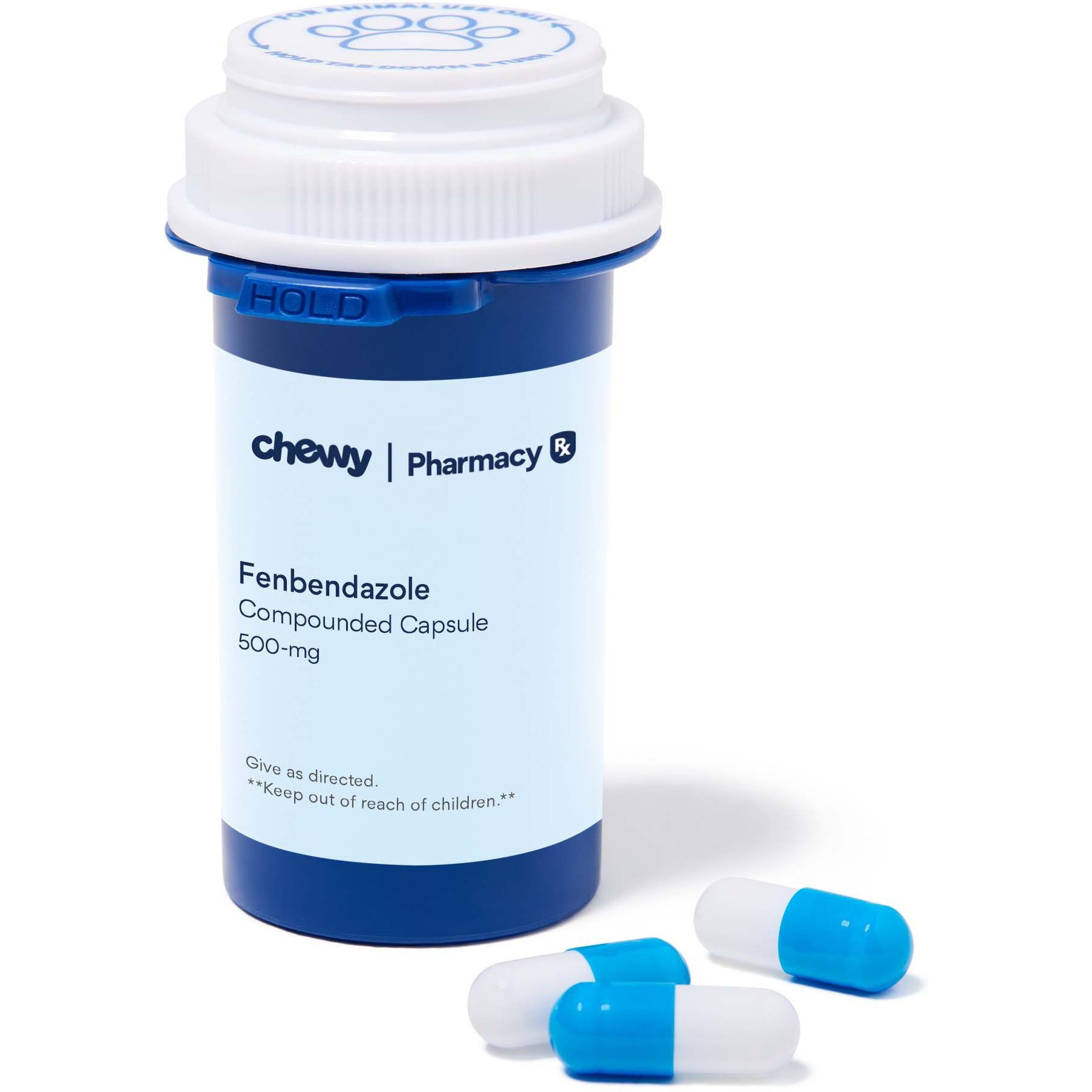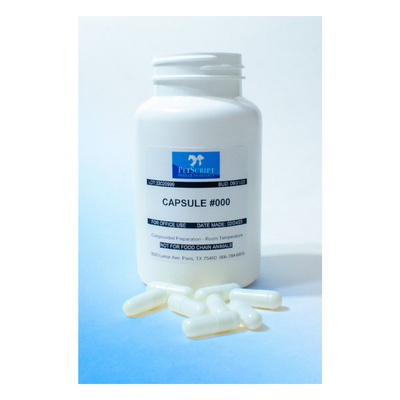Exploring the Systems Behind Fenbendazole and Its Effect On Pet Health
Fenbendazole is a commonly made use of anthelmintic understood for its effectiveness against numerous parasites. Its primary system involves the restraint of microtubule formation, which interrupts critical processes in these virus. Beyond its antiparasitic buildings, fenbendazole also shows up to enhance immune feedbacks and has anti-inflammatory advantages. Recognizing these diverse effects might disclose brand-new applications for animal health. Nonetheless, concerns remain concerning its full capacity and safety profile.
The Pharmacokinetics of Fenbendazole
The pharmacokinetics of fenbendazole, a widely used anthelmintic in veterinary medication, includes the study of its absorption, circulation, metabolic process, and discharging within pet systems. After management, fenbendazole is rapidly soaked up from the gastrointestinal system, with peak plasma focus taking place within hours. Its distribution is influenced by factors such as cells binding and lipid solubility, allowing it to penetrate various tissues successfully. The medication undergoes comprehensive metabolism largely in the liver, where it is converted right into active and inactive metabolites. These metabolites play a function in the medicine's overall efficacy and security account. Discharging takes place primarily with feces, with a smaller sized percentage eliminated via pee. The half-life of fenbendazole varies amongst species, which influences application regimens. Comprehending these pharmacokinetic residential properties is important for enhancing its healing use and guaranteeing effective parasite control in veterinary methods.
Systems of Action Against Parasites
Fenbendazole exerts its antiparasitic impacts primarily through the restraint of microtubule development in bloodsuckers. This disturbance influences their structural stability and cellular features, causing damaged energy metabolic process. As a result, the medication properly endangers the survival and reproduction of different parasitic organisms.
Restraint of Microtubule Development
Inhibition of microtubule development represents a vital system with which specific anthelmintic representatives, consisting of fenbendazole, apply their impacts on parasites. Fenbendazole binds to tubulin, a healthy protein that forms microtubules, interfering with the polymerization process required for microtubule setting up. This interruption harms necessary cellular features, including mitosis, intracellular transportation, and structural stability. As microtubules play a crucial function in preserving the form and function of parasitic cells, their inhibition causes cell cycle apprehension and ultimate fatality of the bloodsucker. This mechanism is particularly reliable versus nematodes, as their dependence on microtubules for movement and nutrient absorption makes them prone to fenbendazole. The restraint of microtubule development is a critical facet of fenbendazole's healing efficiency in veterinary medicine.
Disruption of Basal Metabolism
Disrupting power metabolic process is an additional essential system through which fenbendazole targets parasitical microorganisms. This anthelmintic modifies the energy production pathways within parasites, mostly influencing their capacity to create adenosine triphosphate (ATP) By hindering sugar uptake and disrupting mitochondrial function, fenbendazole restrictions the power sources vital for the survival and reproduction of these microorganisms. Consequently, bloodsuckers come to be significantly at risk to ecological stresses and immune responses. Furthermore, the interference in power metabolic rate not just affects the parasites straight however likewise decreases their capacity to absorb nutrients, additionally hindering their growth. Generally, the interruption of energy metabolism stands for a basic element of fenbendazole's effectiveness against various parasitical infections, contributing significantly to improved pet wellness results
Prospective Negative Effects and Safety And Security Profile
The possible side effects and safety account of fenbendazole warrant mindful consideration, specifically in veterinary applications. While generally pertained to as risk-free, some animals may experience adverse responses, consisting of intestinal disruptions such as vomiting and diarrhea. Furthermore, neurological symptoms, although unusual, have actually been reported in sensitive people, highlighting the need for surveillance during therapy.

Fenbendazole's safety and security in various types, including pet dogs and felines, has actually been documented, however dose and duration of treatment have to be very carefully handled to minimize dangers. Expecting or breast feeding pets may likewise call for unique attention, as the impacts on creating fetuses or nursing children are not completely recognized.
Regular veterinary examinations can assist mitigate prospective side effects and assure the medicine is carried out properly. Consequently, find out this here while fenbendazole is a reliable anthelmintic agent, alertness concerning its adverse effects is important for maintaining animal health.

Fenbendazole's Impact on Immune Feature
Fenbendazole has been noted for its possible to modulate body immune system responses in animals. Its anti-inflammatory homes may contribute to boosted immune feature, supplying a double benefit in managing wellness (fenbendazole capsules). Understanding these results is crucial for examining fenbendazole's function in veterinary medicine
Body Immune System Inflection

Anti-inflammatory Characteristics
Anti-inflammatory impacts stand for a significant facet of fenbendazole's influence on immune function. Study indicates that fenbendazole might reduce the production of pro-inflammatory cytokines, which are pivotal in mediating inflammatory reactions. By modulating these cytokines, fenbendazole can potentially relieve inflammation-related problems in pets. This anti-inflammatory activity not just help in taking care of signs and symptoms connected with numerous illness however likewise improves general immune system effectiveness. Furthermore, its capability to promote a balanced immune action assists protect against excessive inflammatory damages, which can lead to chronic wellness concerns. Fenbendazole's duty in inflammation monitoring emphasizes its value in veterinary medication, offering a dual advantage of antiparasitic action and immune system support for animal wellness.
Applications Beyond Traditional Parasitical Infections
While mainly acknowledged for its effectiveness against various parasitic infections, fenbendazole has garnered focus for prospective applications yet standard range. Recent studies recommend that fenbendazole might have helpful results on mobile wellness and immune action, making it an interesting candidate for taking care of various other health and wellness conditions in animals. For example, its reported anti-inflammatory properties might supply alleviation for pets dealing with persistent inflammatory illness. Furthermore, some study suggests that fenbendazole can play a function in sustaining the overall health of animals by boosting nutrient absorption and stomach health and wellness. Its prospective as an adjunct therapy in cancer cells treatment has actually stimulated interest, as preliminary searchings for suggest it could hinder growth cell growth in specific contexts. These varied applications highlight fenbendazole's flexibility, encouraging more exploration into its multifaceted benefits for animal health and wellness past its traditional use as a deworming representative.
Future Study Instructions and Effects for Pet Health And Wellness
The expedition of fenbendazole's prospective applications has opened new avenues for study intended at boosting pet health and wellness. Future research studies might focus on its effectiveness against a wider variety of pathogens, including bacteria and viruses, thus expanding its duty in vet medication. The effects of fenbendazole's devices, such as its effect on immune modulation, warrant additionally examination to recognize exactly how it can boost see this website general health in various species.
Additionally, research may discover ideal dosages and solutions to maximize efficiency while minimizing prospective adverse effects. Examining fenbendazole's synergistic effects with other drugs might cause extra efficient therapy protocols. Longitudinal research studies reviewing lasting end results in pets treated with fenbendazole could give useful insights into its security and efficiency. On the whole, the continued exploration of fenbendazole supplies appealing potential to improve pet health and wellness, necessitating a collective strategy among scientists, veterinarians, and pharmaceutical designers to facilitate improvements around.
Frequently Asked Concerns
Can Fenbendazole Be Made Use Of in Livestock for Bloodsucker Prevention?
The question of whether fenbendazole can be utilized in livestock for bloodsucker prevention is appropriate, as producers seek effective therapies (fenbendazole). Research study indicates it might supply advantages, however proper guidelines and vet recommendations are essential for risk-free usage
What Is the Suggested Dose of Fenbendazole for Various Animals?

Are There Any Type Of Known Drug Interactions With Fenbendazole?
Current knowledge shows that fenbendazole might connect with particular drugs, potentially affecting their efficiency or metabolic rate. Vet experts suggest talking to a veterinarian to assess individual animal instances and identify any possible communications prior to management.
Exactly How Does Fenbendazole Contrast to Various Other Antiparasitic Medicines?
Fenbendazole is usually contrasted to other check out this site antiparasitic medications based upon effectiveness, spectrum of activity, and safety and security accounts. It is favored for its performance versus a wide variety of parasites while normally displaying minimal side effects in animals.
Is Fenbendazole Effective Versus Viral or Microbial Infections in Animals?
The effectiveness of fenbendazole versus viral or microbial infections in animals remains unverified. Study largely concentrates on its antiparasitic residential or commercial properties, with restricted evidence sustaining any kind of duty in dealing with non-parasitic infections in vet medicine.